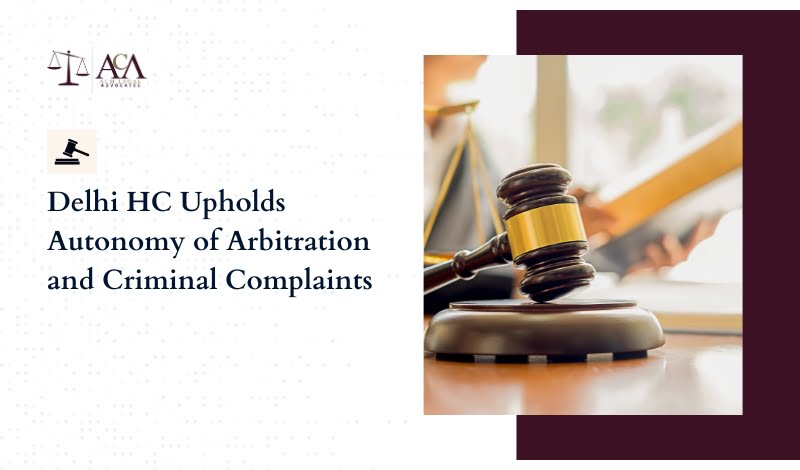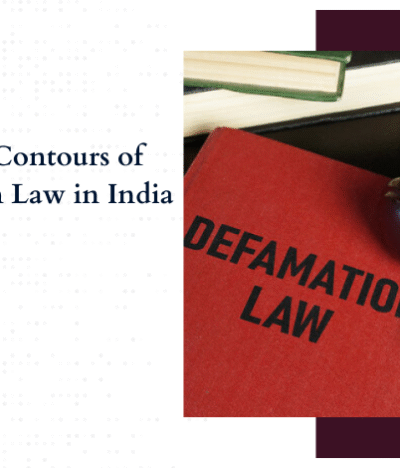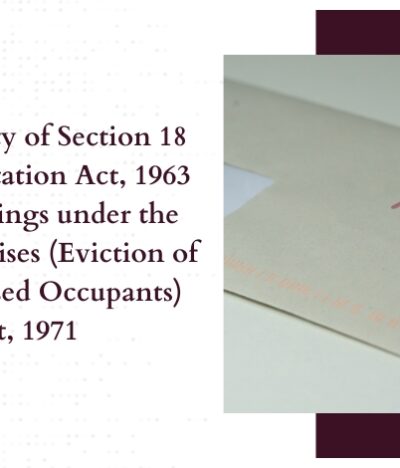In a recent ruling, the Delhi High Court underscored the distinct nature of arbitration proceedings and complaints filed under Section 138 of the Negotiable Instruments Act (“NI Act”). Justice Amit Bansal, presiding over the case of Newton Engineering and Chemicals Limited and Ors. v. UEM India Pvt Ltd date ( decided on 23rd November 2023), clarifies that the pendency of one does not affect the other. This judgement delves into the intricate legal framework governing arbitration agreements and criminal liabilities under the NI Act. Drawing upon the observation of the Supreme Court in Sri Krishna Agencies v. State of A.P. & Anr.,[1] Justice Bansal reaffirmed that there can be no bar to the simultaneous continuance of a criminal proceeding and a civil proceeding if the two arise from separate causes of action.
Case Background
The crux of the dispute between Newton Engineering and Chemicals Limited (the petitioners) and UEM India Pvt Ltd (the respondent) proceeds from a Memorandum of Understanding (MoU) executed on 19th June 2014. This MoU delineated the terms for the Modernization of the ETP Plant at the ONGC Urban Plant, wherein UEM India Pvt Ltd was expected to act as a technical collaborator.
Following the award of the contract by ONGC to the petitioners, a post-dated cheque amounting to Rs. 7,00,000/-, dated 23rd June 2017, was issued by the petitioners to UEM India Pvt Ltd as part of the contractual obligations. However, the contract faced a sudden termination by ONGC via a letter dated 15th June 2017.
Despite the termination, UEM India Pvt Ltd proceeded to deposit the post-dated cheque, leading to legal consequences. The petitioners communicated their objection through an email on 21st June 2017, appealing to UEM India Pvt Ltd to stop depositing the cheque.
Nevertheless, UEM India Pvt Ltd continued, leading to the dishonouring of the cheque and subsequent initiation of criminal proceedings under Section 138 of the NI Act by UEM India Pvt Ltd against the petitioners. This prompted the petitioners to seek recourse through a quashing petition, as arbitration proceedings were already initiated between the petitioners and the respondent company pursuant to an arbitration clause in the Memorandum of Understanding. However, the respondent contended that arbitration proceedings and complaints under Section 138 of the NI Act are autonomous and can proceed concurrently.
Contentions and Legal Issues
- The main submission of the counsel for the petitioners was that the MoU between the parties contained an Arbitration Clause, pursuant to which arbitration proceedings have been initiated, though contented that arbitration should supersede criminal jurisdiction.
- Conversely, UEM India Pvt Ltd asserted that arbitration and criminal complaints are independent, citing the dishonoured cheque as a separate cause of action.
Legal Issues
Independence of Proceedings:
- The Court deliberated on whether arbitration proceedings preclude criminal complaints or if both can proceed independently.
Validity of Section 138 Complaint:
- The validity of the complaint under Section 138 NI Act was questioned, considering the ongoing arbitration and contractual disputes.
Analysis of the Case
Justice Amit Bansal affirmed the independence of arbitration proceedings and complaints under Section 138 of the NI Act. Dismissing the petition, Justice Bansal rejected the petitioner’s contention that the complaint was untenable due to ongoing arbitration proceedings. Citing the Supreme Court’s decision in Sri Krishna Agencies v. State of A.P. & Anr., Justice Bansal emphasized that both proceedings can proceed concurrently, due to their different causes of action.
The court underscored the distinct nature of the dishonoured cheque as a separate legal issue, irrespective of the contractual disputes subject to arbitration. This ruling reaffirmed the principle that the initiation of arbitration does not preclude aggrieved parties from seeking redressal through criminal proceedings for dishonoured instruments.
Furthermore, the Court emphasized that the determination of whether the cheque was given as security or otherwise would be adjudicated during the trial, highlighting the need for a comprehensive legal examination of the facts. This verdict serves as a jurisprudential precedent, elucidating the concurrent viability of arbitration and criminal proceedings under distinct legal frameworks.
Conclusion
In conclusion, the judgment underscores the complexities of commercial disputes and the importance of adhering to established legal frameworks for dispute resolution. By affirming the autonomy of arbitration proceedings and criminal complaints, the Delhi High Court emphasizes the need for parties to seek redress through appropriate legal channels while honouring contractual obligations. This decision sets a precedent for future cases and reinforces the judiciary’s role in ensuring equitable resolution of disputes in the corporate realm.






